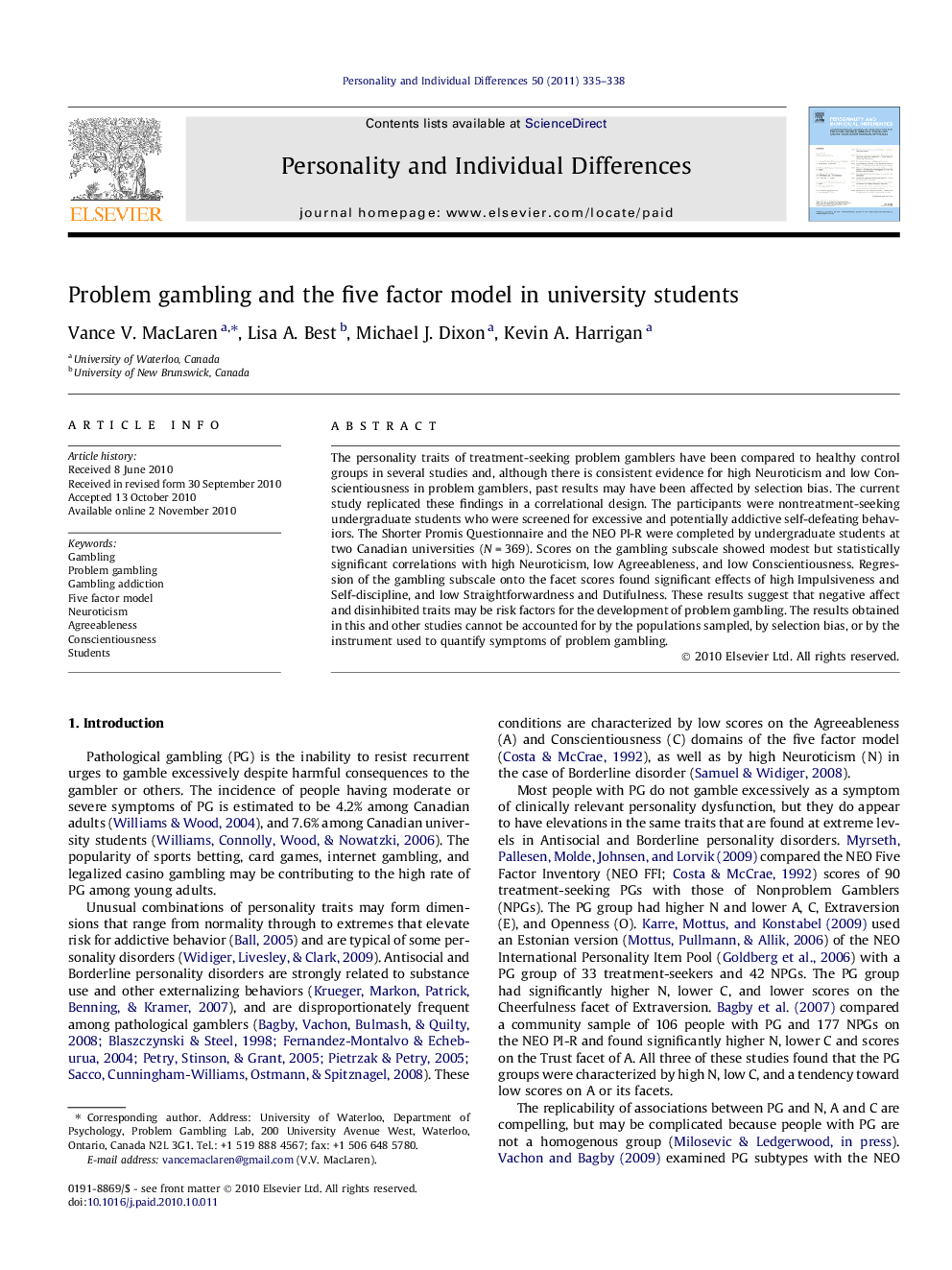| Article ID | Journal | Published Year | Pages | File Type |
|---|---|---|---|---|
| 891585 | Personality and Individual Differences | 2011 | 4 Pages |
The personality traits of treatment-seeking problem gamblers have been compared to healthy control groups in several studies and, although there is consistent evidence for high Neuroticism and low Conscientiousness in problem gamblers, past results may have been affected by selection bias. The current study replicated these findings in a correlational design. The participants were nontreatment-seeking undergraduate students who were screened for excessive and potentially addictive self-defeating behaviors. The Shorter Promis Questionnaire and the NEO PI-R were completed by undergraduate students at two Canadian universities (N = 369). Scores on the gambling subscale showed modest but statistically significant correlations with high Neuroticism, low Agreeableness, and low Conscientiousness. Regression of the gambling subscale onto the facet scores found significant effects of high Impulsiveness and Self-discipline, and low Straightforwardness and Dutifulness. These results suggest that negative affect and disinhibited traits may be risk factors for the development of problem gambling. The results obtained in this and other studies cannot be accounted for by the populations sampled, by selection bias, or by the instrument used to quantify symptoms of problem gambling.
